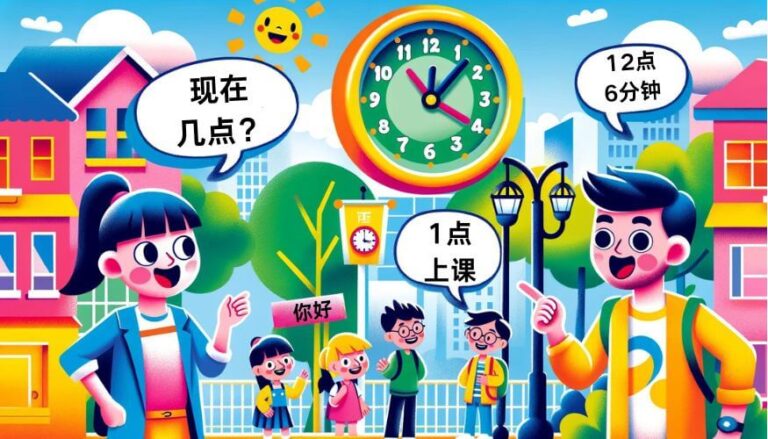How to Say Happy in Chinese: Expressing Your Emotions

Introduction
Emotions are a vital part of any language, and Mandarin is no different. Whether you’re feeling joyful, sad, or a bit frustrated, being able to express your emotions clearly is essential in daily communication. In this post, we’ll focus on how to say “happy” in Chinese and explore other important emotional expressions that will help you connect with people on a deeper level.
How to Say Happy in Chinese
The word for “happy” in Chinese is 快乐 (kuàilè). It’s a versatile word that can be used in a variety of situations. Here’s how you can use it in a sentence:
- 我很快乐 (Wǒ hěn kuàilè) – I am very happy.
You might also hear:
- 开心 (kāixīn) – Another common way to express happiness, often used to describe feeling cheerful or content.
Example sentence:
- 今天我很开心! (Jīntiān wǒ hěn kāixīn!) – Today I’m very happy!
Other Important Emotion Words
While being happy is great, it’s equally important to express a range of emotions. Here are a few more essential emotion-related words in Chinese:
- 生气 (shēngqì) – Angry
- Example: 你为什么生气?(Nǐ wèishéme shēngqì?) – Why are you angry?
- 难过 (nánguò) – Sad
- Example: 她看起来很难过。 (Tā kàn qǐlái hěn nánguò.) – She looks very sad.
In the next section, we’ll explore more emotions like surprise, fear, and love, giving you a well-rounded vocabulary to express how you feel in Chinese!
Surprised
If you’re caught off guard or amazed by something, expressing surprise in Mandarin is simple. The word for “surprised” is 惊讶 (jīngyà). Here’s how to use it in a sentence:
- 我很惊讶! (Wǒ hěn jīngyà!) – I am very surprised!
You can also use:
- 吓一跳 (xià yí tiào) – This is a more casual expression, meaning “startled” or “shocked.”
Example sentence:
- 他吓了我一跳! (Tā xià le wǒ yí tiào!) – He startled me!
Fear
To express fear or being scared, the word is 害怕 (hàipà). You can use it in many situations where you feel frightened or nervous.
- 我害怕黑暗。 (Wǒ hàipà hēi’àn.) – I’m afraid of the dark.
Example sentence:
- 你害怕什么? (Nǐ hàipà shénme?) – What are you afraid of?
Love
One of the most universal emotions, “love,” is 爱 (ài) in Mandarin. While it’s commonly used to express love for a person, it can also be used for things or activities you are passionate about.
- 我爱你 (Wǒ ài nǐ) – I love you.
Example sentence:
- 我爱吃中国菜! (Wǒ ài chī zhōngguó cài!) – I love eating Chinese food!
Now that we’ve covered happiness, surprise, fear, and love, let’s dive into how to express more complex emotions like frustration and excitement in the final part of this post.
Frustration
When you feel stuck or annoyed, 沮丧 (jǔsàng) is the word for “frustrated” in Mandarin. It’s useful in situations where things aren’t going your way.
Example sentence:
- 我感到很沮丧。 (Wǒ gǎndào hěn jǔsàng.) – I feel very frustrated.
For a more casual way to express annoyance or being fed up, you can say:
- 烦死了! (Fán sǐ le!) – I’m so annoyed!
Excited
When you’re full of energy and can’t wait for something, use the word 兴奋 (xīngfèn) to express excitement.
Example sentence:
- 我对明天的旅行感到很兴奋! (Wǒ duì míngtiān de lǚxíng gǎndào hěn xīngfèn!) – I’m really excited about tomorrow’s trip!
Sadness
To express sadness, the word you’re looking for is 难过 (nánguò). Whether you’re feeling down about a bad day or something more serious, this word captures the essence of being sad.
Example sentence:
- 我很难过。 (Wǒ hěn nánguò.) – I am very sad.
Another common expression is 伤心 (shāngxīn), which literally translates to “heartbroken.”
Example sentence:
- 她的离开让我伤心。 (Tā de líkāi ràng wǒ shāngxīn.) – Her departure made me heartbroken.
Conclusion
Mastering emotions in Mandarin will help you connect better with native speakers and navigate through conversations with more depth. Whether you’re expressing joy, frustration, or surprise, using the right words will make your interactions feel more natural. Keep practicing these words in daily conversation, and you’ll find it easier to convey exactly how you feel in Mandarin!
Stay tuned for our next post on expressing likes and dislikes in Chinese!






